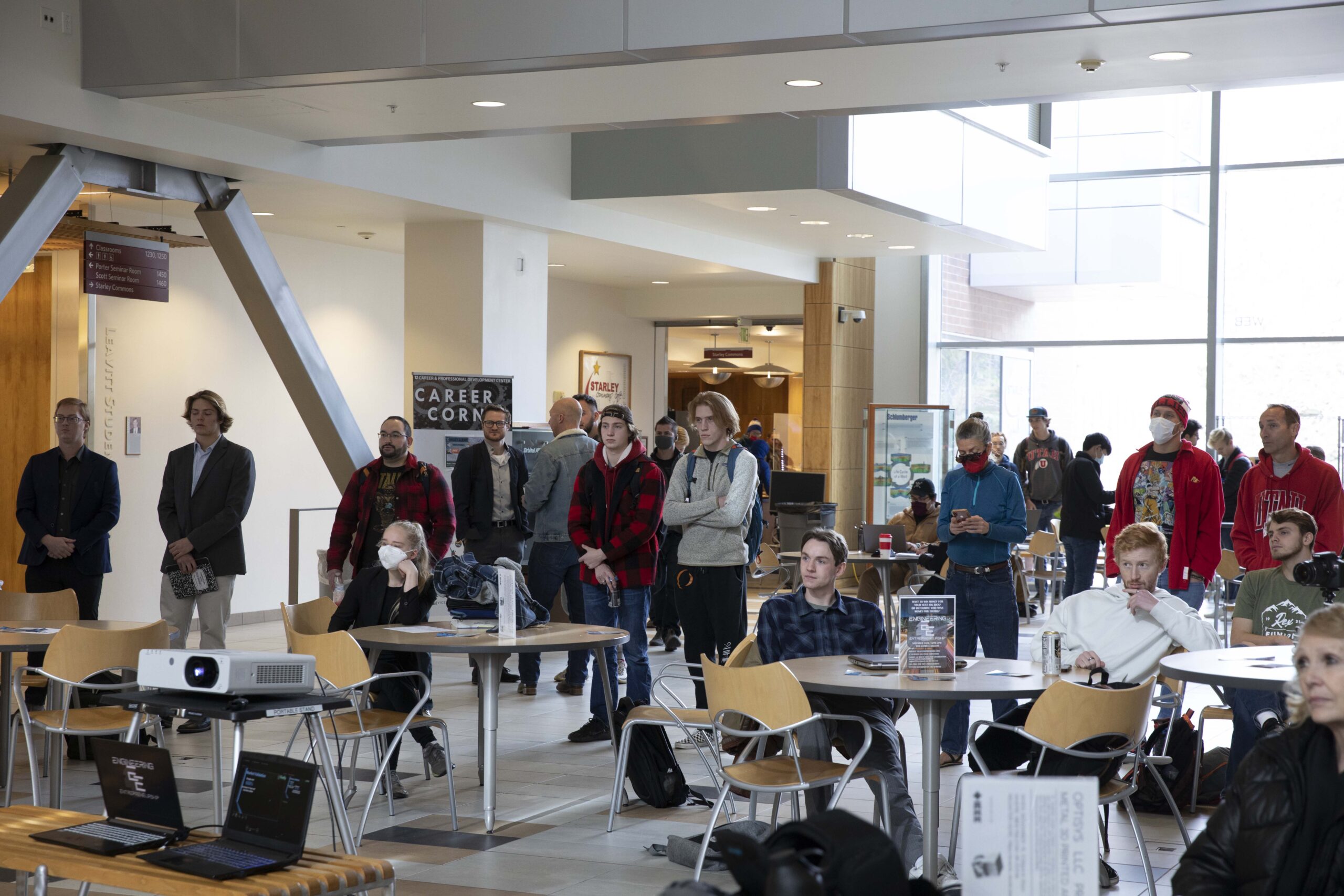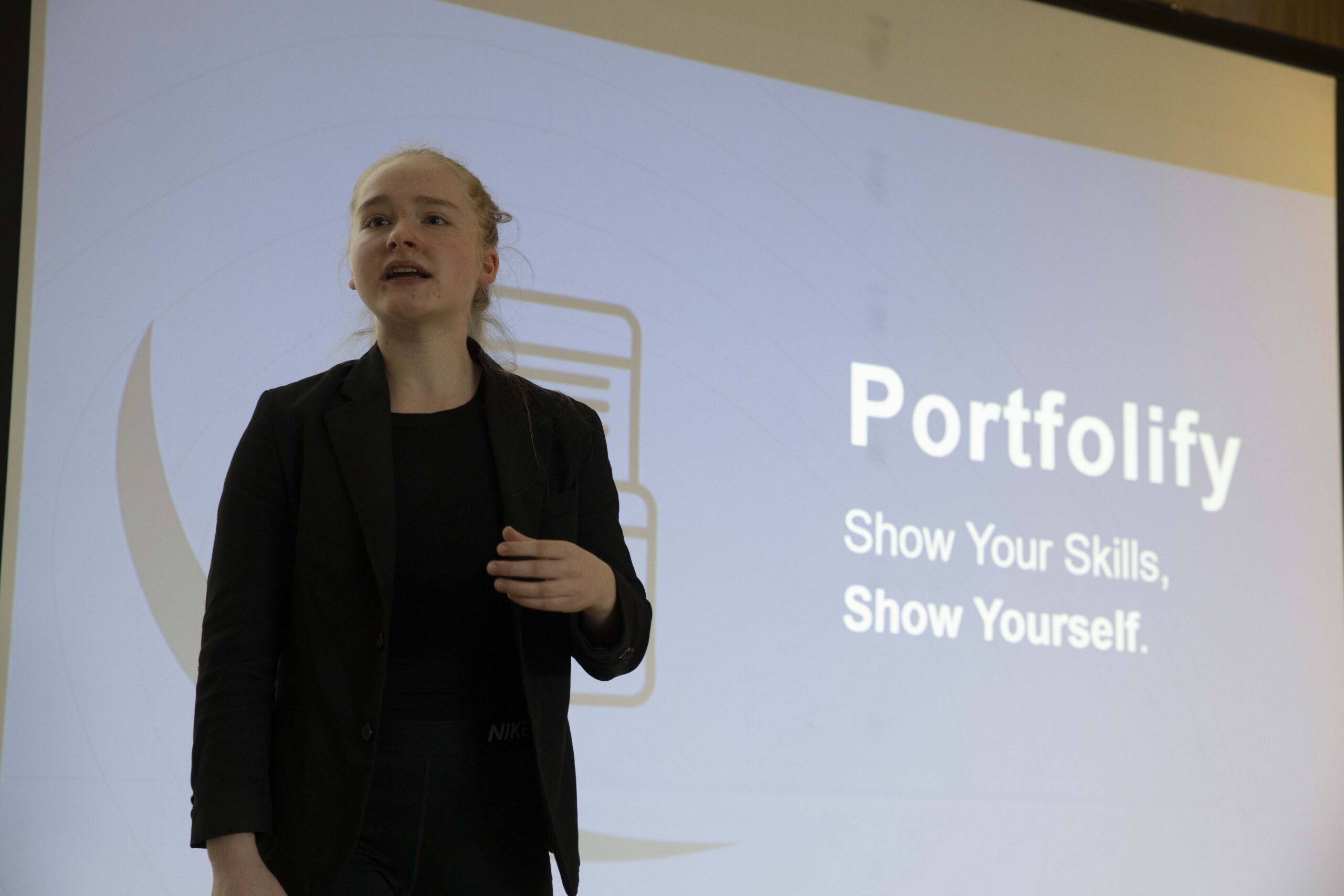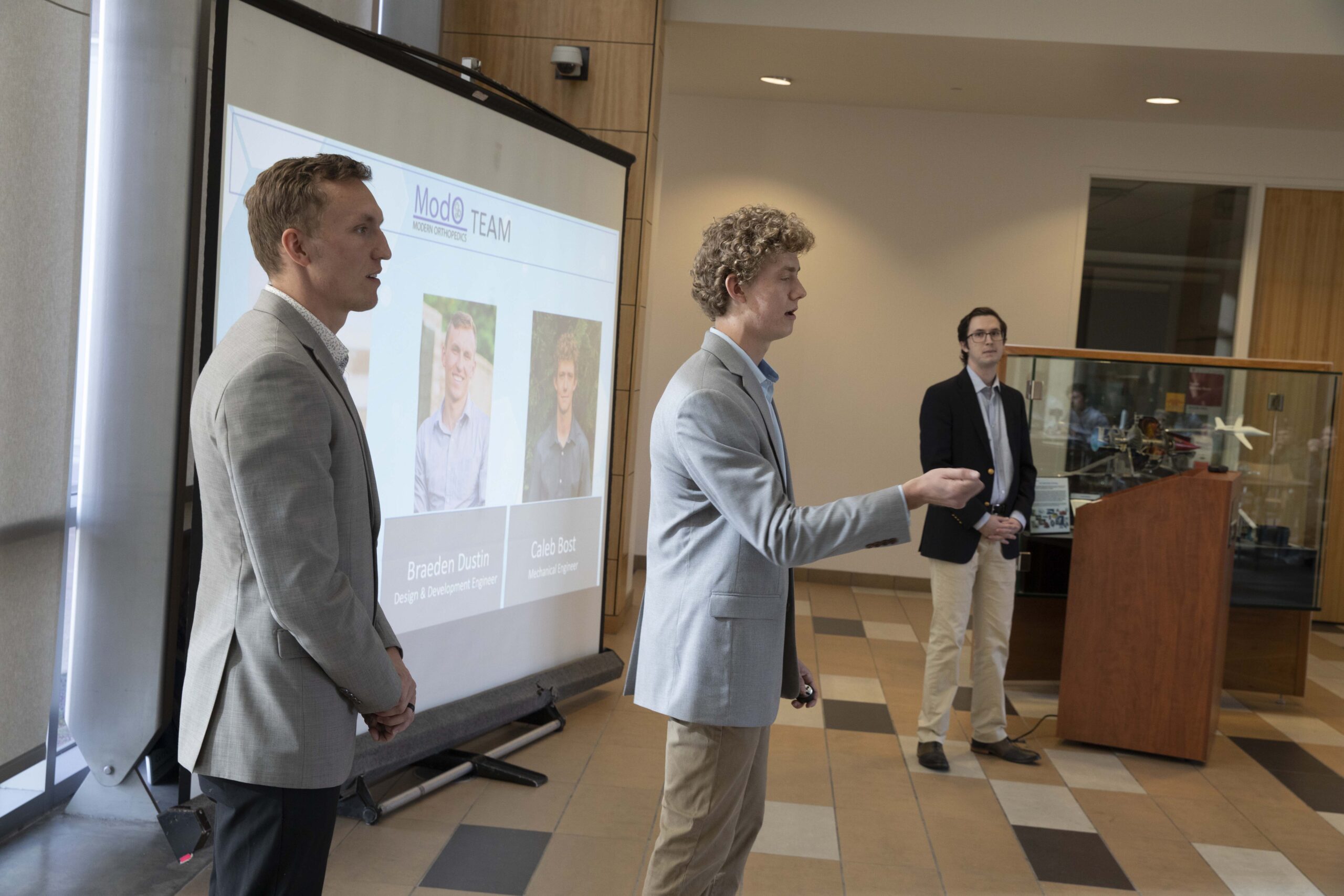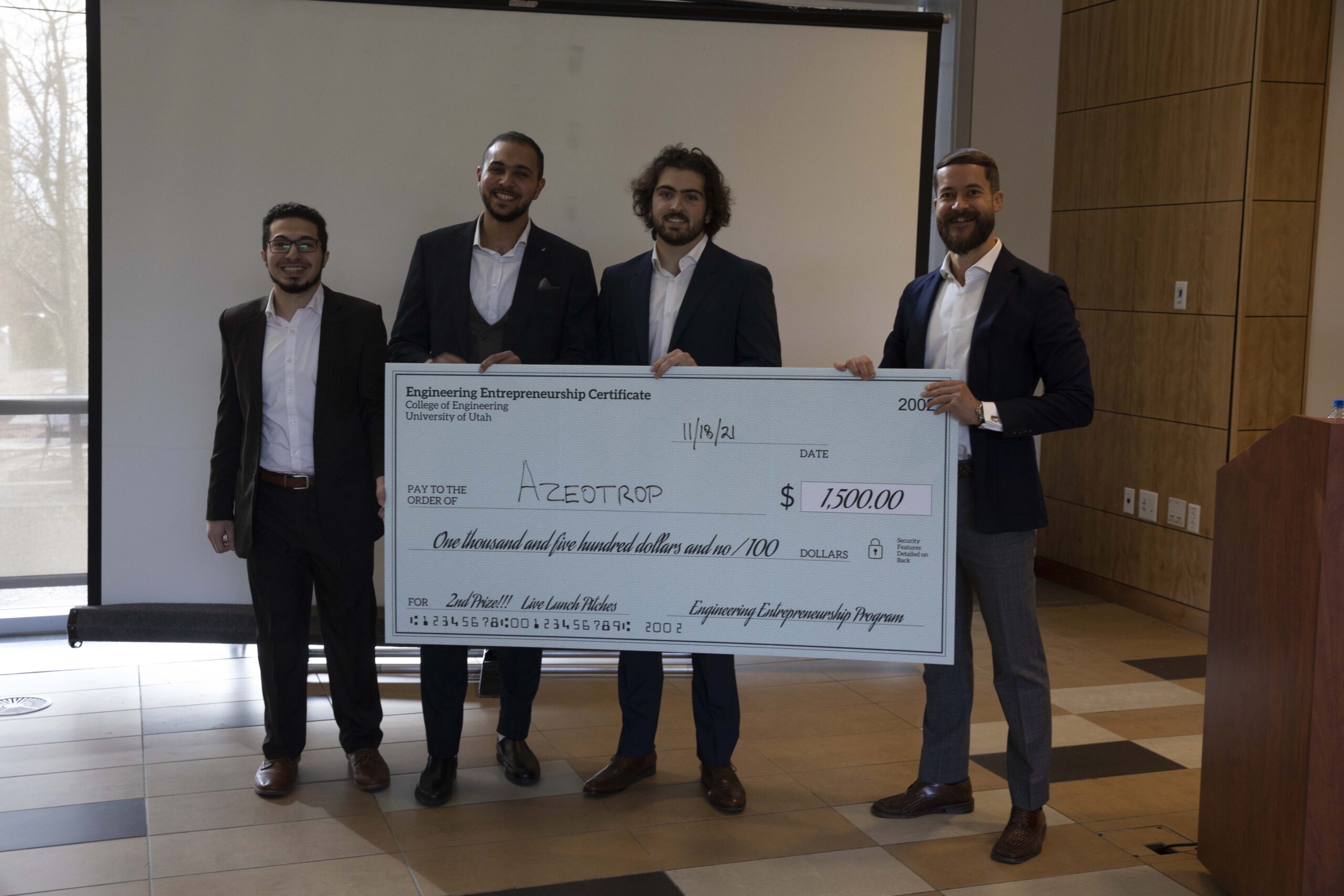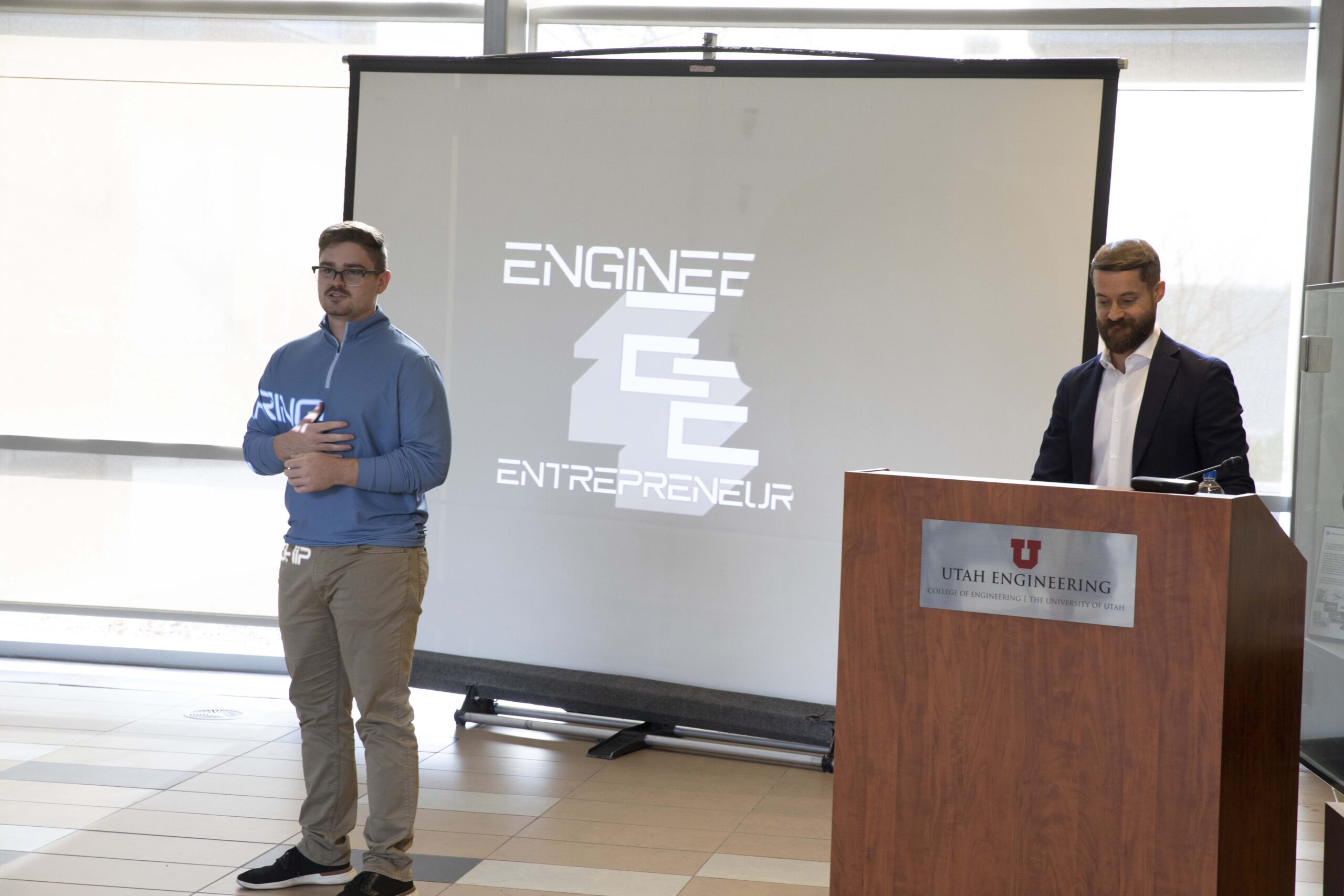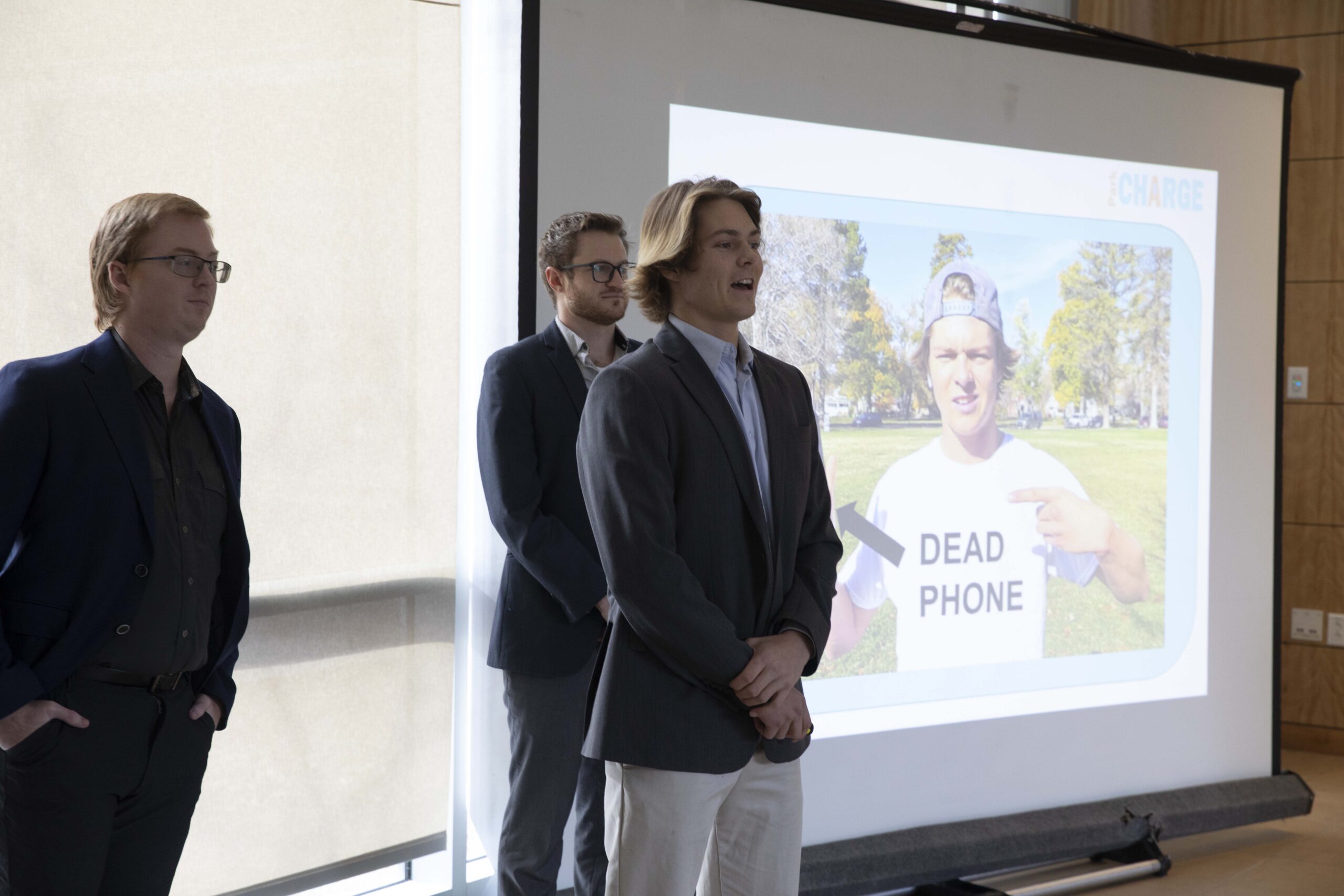One of the keys to success in entrepreneurship isn’t just coming up with the idea, it’s also effectively communicating that idea to the right people.
That’s why mastering the “elevator pitch,” delivering a short, punchy proposal of your idea, is a vital piece of the entrepreneurial puzzle. So on Nov. 19, the University of Utah Engineering Entrepreneurship Certificate Program hosted the first annual “Live Lunch Pitch Competition.” Students performed live entrepreneurial pitches in the Catmull Gallery of the Warnock Engineering Building on research they intend to commercialize. Winners were selected exclusively on audience response from their peers.
Ryan Brown, director of the Engineering Entrepreneurship Certificate Program, said the competition offered two opportunities for the participants, invaluable experience in pitching their ideas and prize money.
“Engineering students get practice with live rounds, an audience with whom they are unfamiliar, and money on the line,” he said. “This is extremely important — because after live pitching to peers under such conditions, future entrepreneurship contests will feel easy in comparison.”
Nineteen students competed on teams ranging from one to three people, and 17 of them are Engineering Entrepreneurship Certificate students.
The Engineering Entrepreneurship Certificate Program is a 20-credit-hour curriculum developed by the College of Engineering and the U’s David Eccles School of Business offers engineering students the opportunity for hands-on innovation experience as well as a strong foundation in the business aspects of technology. Click here for more information on the program.
Winners
First Prize ($2,500): Team Firefly. Chandler Millar (mechanical engineering) and Michel Kruger Miguel (international student exchange) came up with the idea for a web-interfaced aggregator of local businesses’ products, which is presented in a simple searchable format and developed to keep local business alive and profitable despite medical lockdowns and the resulting shifts to ecommerce.
Second Prize ($1,500): Team Azeotrop. Mahmoud Elmehlawy (chemical engineering), Ahmed Elnashar (chemical engineering), and Victor Leao-David (mechanical engineering) are developing a process to use nanomaterials to increase the efficiency of fluid separation, thereby refining fuels like ethanol up to 20% more efficiently, which would benefit the environment.
Third Prize ($1,000): Emily Erickson was a one-person team who proposed a software-based method for automating student portfolio creation for use in job applications, etc.
Click below to see video pitches of the first- and second-place winners as well as photos of the event.
